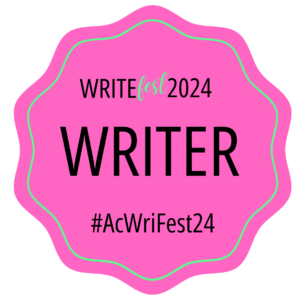
November is academic Writing Month, this annual event was established as a way to support academic writing. During November 2024, the Institute for Academic Development run WriteFest, a local contribution to this academic writing month, with the aim of bringing people together to raise awareness and celebrate academic writing.
In this guest blog, Dr Lindsay Knox and Dr Cathy Benson discuss discuss ways to develop academic writing, and the support available from English Language Education, who offer a range of academic writing courses for students at different stages of their research journey.
Writing a thesis can sometimes seem like a gargantuan task, the journey can feel never-ending. But there are many ways you can make the journey more manageable, the task more achievable.
We at English Language Education offer several writing courses for doctoral students, intended to correspond to the different stages of your journey. They aim to enhance your writing skills, including your use of appropriate academic language, to help you to develop your own voice as a writer, and to participate fully in your academic discourse community.
If you are in your first year, and preparing for your Annual Review, we’d recommend Writing your PhD First Year Report. This course aims to help you to write the document you will (in most cases) submit to the examiners before the panel. For details of this and our other doctoral writing courses, please see this web-page: ALLIS Courses for Postgraduate Research Students
You can choose whether to take any of these courses in-person or online, as we know that some of you may be away from Edinburgh, collecting data or writing up your research. All include weekly feedback on your writing and, at the end of the course, the opportunity for a one-to-one tutorial where you can discuss your writing with your teacher.
You are also very welcome to sign up for a one-to-one tutorial at our Graduate Writing Centre.
Whether you attend a course or not, there are myriad ways in which you can help yourself (and each other) to enhance your writing.
- Read, read, read. By this we mean active reading. Look at the ways texts are structured in your discipline, and the way concepts are explained; notice how ideas are expressed and connected, how arguments are constructed, how findings are reported and discussed.
- Revise, revise, revise. Here, we don’t just mean proof-read for typos. Research has shown that more successful writers revise their texts repeatedly, and at a global level – changing, adding, and removing content; re-organising sentences, paragraphs and whole texts; and polishing the way their ideas are expressed.
- Form a writing group with peers who are working on related topics. Show each other your drafts, be open to constructive suggestions and be willing to make them!
Where something seems unclear, ask for clarification. Question claims that seem to be too strongly asserted. Comment where you think there’s a lack of criticality… - Respond to feedback from your supervisors – and don’t be afraid to ask for clarification if necessary, your supervisors want to help!
We wish you every success with your writing and look forward to welcoming some of you to our courses!


